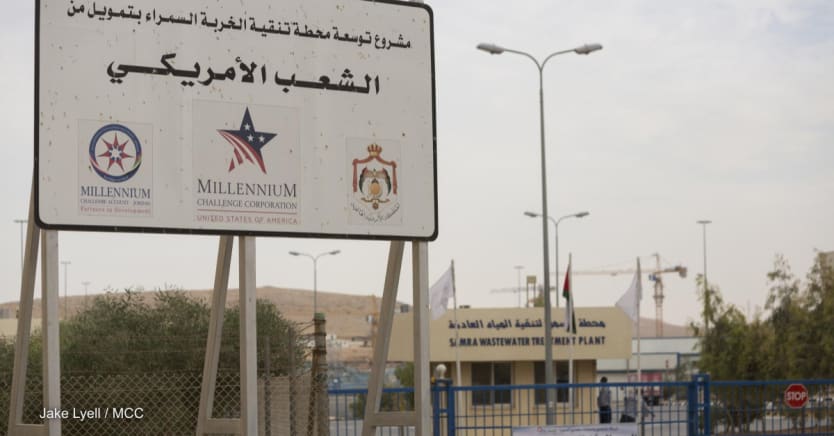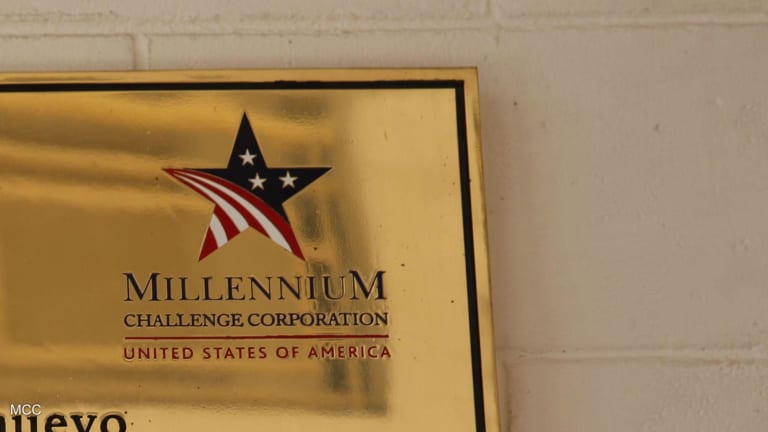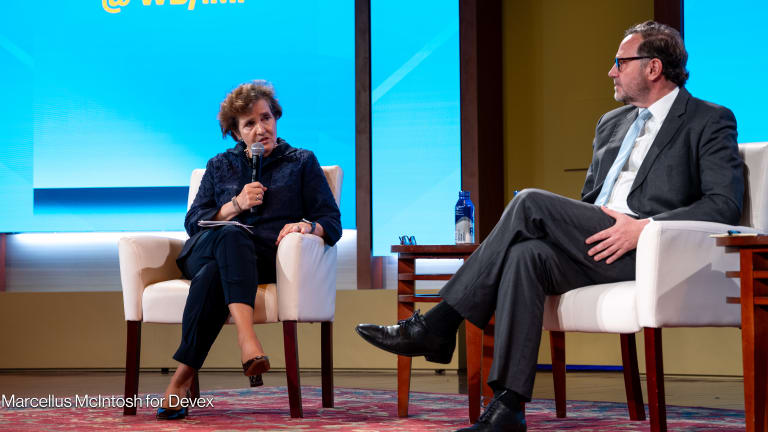MCC eyes expansion of eligible countries to better tackle poverty

A shrinking group of nations qualify for funding from the Millennium Challenge Corporation, but a bill making its way through the U.S. Congress would help address that, expanding the agency's ability to work in middle-income countries where poverty is rising and fostering a greater role in Washington’s foreign policy.
MCC’s current approach, which has income requirements and rules out countries that fail tests on governance and other legal, investment, and economic policy challenges, gives it fewer potential partners than in the past. A number of nations have also grown wealthier amid declining global poverty, with certain ones graduating out of possible support from the agency. MCC has worked in some capacity with most of the countries that meet its income criteria and pass its policy scorecard.
As a result, the agency is contending with how to evolve, and the Millennium Challenge Corporation Eligibility Expansion Act could hold part of the answer.
The bipartisan bill, approved by the House Foreign Affairs Committee last week, would raise the number of countries where MCC can work.
The bill proposes that the group of nations potentially eligible for MCC compacts — its signature five-year grants — be expanded to the 125 with the lowest gross national incomes each fiscal year, as measured by the World Bank. This would be up from the 81 currently eligible.
“MCC has had a little bit of an identity crisis” in the past few years, and this legislation could be a first step to better utilize one of the main pools of U.S. funding for global infrastructure, said Conor Savoy, a senior fellow at the Center for Strategic and International Studies.
The agency has been “grappling with a partner pipeline challenge” and “thinking about what more [it] could … be doing amid various overlapping crises,” said Erin Collinson, the director of policy outreach at the Center for Global Development.
The problem
Sign up for Devex Invested
The must-read weekly newsletter that keeps you up to date with news about business, finance, and the SDGs.
The legislation was written to address a number of issues, including that MCC compacts can take years to negotiate, ratify, and implement, with efforts stalled or abandoned if a country falls out of the qualifying income category during the process.
“It will ensure that MCC has a stable number of potential candidates, even as global incomes continue to change,” said Rep. Joaquin Castro, a Democrat from Texas who co-sponsored the bill.
The agency asked Congress for several legislative fixes in its most recent congressional budget justification “in the hopes we could really move the needle on identifying and addressing where we see the largest pools of poverty,” Aysha House, the vice president of congressional and public affairs at MCC, told Devex.
The expansion would allow MCC to work in middle-income countries where extreme poverty is growing, she said. But while this broader group of nations could be eligible, that doesn’t necessarily mean they will be selected, she added.
“As we look across our portfolio, we do see there is a lot of need to regionally diversify where we are going,” she said, adding that two-thirds of MCC’s work is in Africa but the agency does little work in parts of Eastern Europe and Asia where poverty is increasing.
This diversification is also a reason for the bill’s support in Congress.
“As the People’s Republic of China continues pushing forward with its Belt and Road Initiative, expanding the MCC’s country eligibility is critical for fostering transparent and responsible financing opportunities in developing countries,” said a statement from Rep. Young Kim, a Republican from California and a bill co-sponsor, referring to Beijing’s international infrastructure program.
What you need to know from US DFC, MCC, and Peace Corps hearing
The CEOs of the U.S. International Development Finance Corporation, the Millennium Challenge Corporation, and Peace Corps testified at a House Foreign Affairs Committee hearing Tuesday. Here's what you need to know.
While some might argue that the agency is trying to be part of the geopolitical discussion, House said that MCC’s decision-making process and project design keep it outside of political wrangling and better focused on its mission to reduce poverty.
Enlarging the eligibility pool to 125 countries would cover 90% of vulnerable people globally, according to MCC analysis.
What’s next?
The agency is drafting a policy to outline processes in case the bill passes, including the prioritization of low-income countries and only comparing nations in the same income bracket for decision-making purposes.
If the legal change is made, MCC would evaluate whether the 125 countries meet its governance criteria and can pass its policy scorecard. Those that do would then proceed, as usual, to steps such as a board review. If selected, nations would have to make contributions commensurate with their income level — another change made in the bill.
A tangible impact of the policy shift would be greater opportunity to establish regional compacts — for example, between Ukraine and a neighboring country post conflict, House said.
The bill does not include a recommendation to increase MCC’s budget, and the agency doesn’t need more funding to implement the changes, but House said “with more we can do more.”
The goal is to get the bill on the House of Representatives calendar for a vote in the next few months, a congressional staffer with knowledge of the bill told Devex. There are also discussions underway with the Senate, where there is some interest in the bill, the staffer said.
While this bill amounts to a set of narrow changes, some think MCC should consider broader reforms, including to its scorecard indicators, Savoy said, adding that the agency should “think about other potential tweaks to make it a more robust part of U.S. assistance abroad.”

Search for articles
Most Read
- 1
- 2
- 3
- 4
- 5








